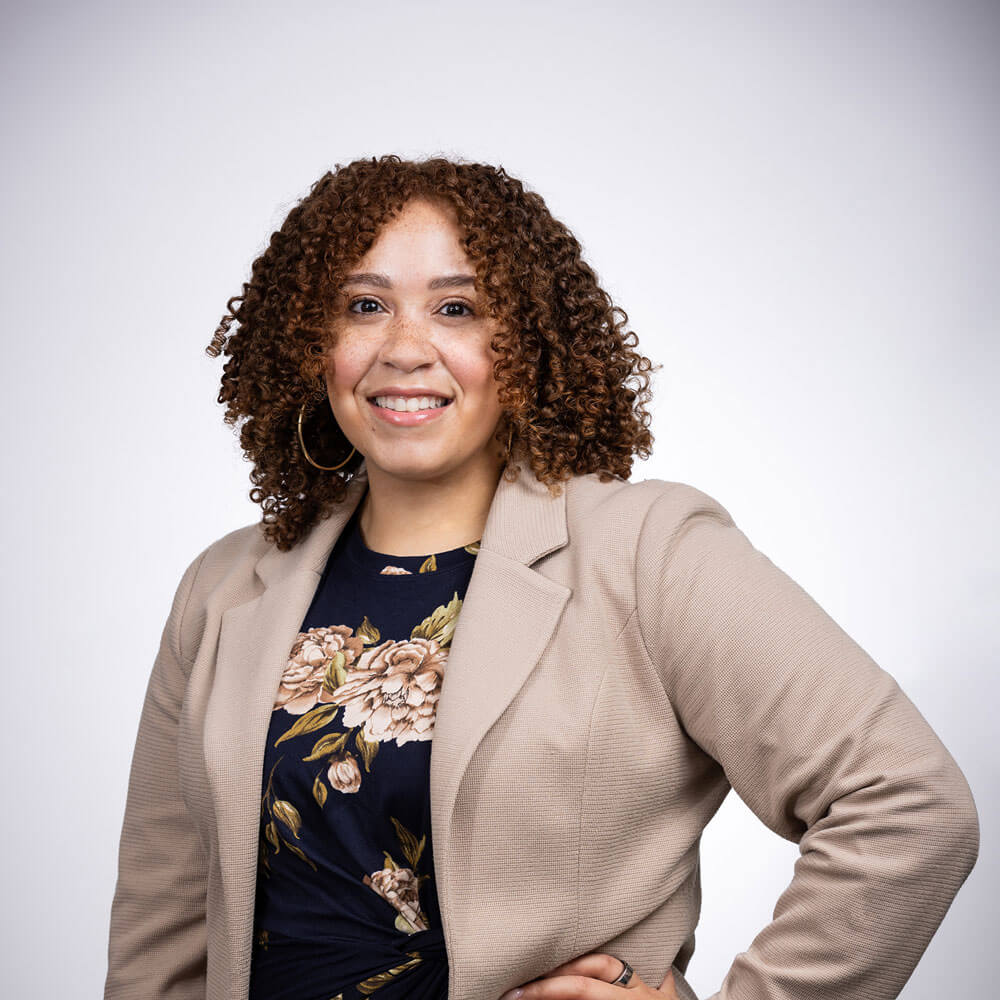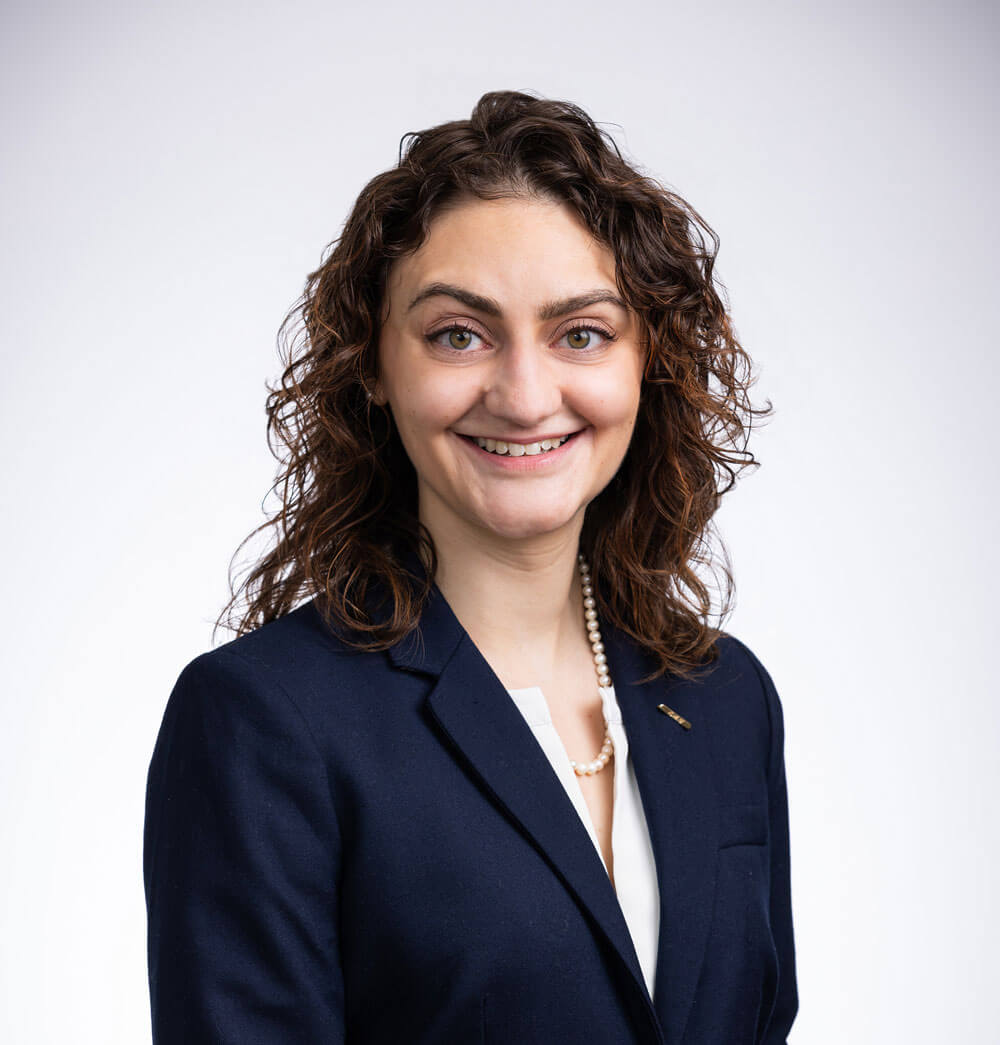Nicole Parker, Ph.D.
Dr. Nicole Parker is a seasoned health policy professional, specializing in the intersection of health and biomedical, behavioral, and social sciences research. At Lewis-Burke, she focuses on federal research policy, grants policy, and education and workforce policy, particularly within key agencies like the National Institutes of Health (NIH), the Advanced Research Projects Agency for Health (ARPA-H), and other grant-making bodies under the Department of Health and Human Services (HHS). Leveraging her background as a biomedical researcher, Nicole effectively connects with clients aiming to expand their biomedical research and health-funding portfolios. Her prior role as a federal contractor in various NIH offices uniquely positions her to help clients navigate the agency's priorities and operations.
During her tenure at Lewis-Burke, she has successfully supported a diverse array of clients, including universities, non-profits, societies, and foundations. Her comprehensive understanding of these fields, coupled with her passion for driving positive change, underscores her effectiveness in advancing health policy objectives and fostering innovation in biomedical research.
Issue Expertise: Biomedical research, research and grants policy, graduate education, biomedical training and workforce, STEM education, and broadening participation in STEM.
Additional Expertise: Before joining Lewis-Burke, Dr. Nicole Parker served as a Science Policy Analyst at Ripple Effect, a management consulting firm providing services to federal, private, and non-profit clients. During her tenure, she contributed to impactful projects within prestigious institutions such as the NIH and the Center for Medicaid and Medicare Services (CMS). Nicole's exemplary work ethic and expertise were further honed during her tenure as a Christine Mirzayan Science and Technology Policy Graduate Fellow at The National Academies of Sciences, Engineering, and Medicine. In this role, she worked with the Board on Higher Education and Workforce, solidifying her dedication to science policy, particularly in the realms of education and workforce development.
Vital Statistics:
Dr. Nicole Parker earned her Ph.D. in biochemistry and molecular biology from the Johns Hopkins Bloomberg School of Public Health in 2017. Her doctoral research focused on elucidating the role of the growth factor GDNF in the replication and differentiation of stem cells in the testis. Nicole is also a proud graduate of the Meyerhoff Scholarship Program at the University of Maryland Baltimore County (UMBC), where she earned a Bachelor of Science in Biochemistry and Molecular Biology, with a minor in sociology, in 2011.
In her leisure time, Nicole cherishes moments with her family and dedicates herself to service activities with her sorority, Delta Sigma Theta Sorority, Inc. She also enjoys participating in her monthly book club, a testament to her enduring curiosity and passion for lifelong learning.
Eve Granatosky, Ph.D.
Dr. Eve Granatosky is an experienced science policy and advocacy professional who specializes in the interdisciplinary opportunities at the intersection of life sciences, physical sciences, and engineering. She leverages her scientific background and in-depth knowledge of federal agencies including the National Institutes of Health (NIH), the Advanced Research Projects Agency for Health (ARPA-H), and the National Science Foundation (NSF) to connect clients to key congressional and agency allies, as well as to advise on strategic planning, relationship building, competing for funding, and shaping new programs. As a trained biochemist and former Hill staffer, she has an appreciation for the nuances of research, policy, and politics, empowering her to effectively represent clients’ interests across the federal science landscape. In her work at Lewis-Burke, Eve has demonstrated success in providing unique insights into emerging opportunities that might otherwise be overlooked across a range of university, non-profit, and industry organizations.
Issue Expertise: Biomedical research, life sciences, biotechnology, biomanufacturing, environmental health, innovation and commercialization, graduate STEM education.
Additional Expertise: Prior to joining Lewis-Burke, Eve was selected for the Genetics and Public Policy Fellowship, during which she worked as a fellow in policy offices at the American Society of Human Genetics and the National Human Genome Research Institute at NIH. Eve also gained valuable experience as a Legislative Fellow for Senator Richard Blumenthal (D-CT), covering health, education, and biomedical research issues. During her doctoral training, Eve led grassroots student efforts to promote science policy and advocacy on her university campus and co-founded the Science Policy Initiative at the University of Notre Dame.
Vital Statistics: Eve earned her Ph.D. from the University of Notre Dame, where she studied pre-clinical drug development for neurodegenerative diseases and developed a deep appreciation for Fighting Irish sports. She also holds a B.S. from Stonehill College, where she majored in biochemistry and minored in dance. Outside of work, Eve enjoys yoga, crossword puzzles, and the New England Patriots.

